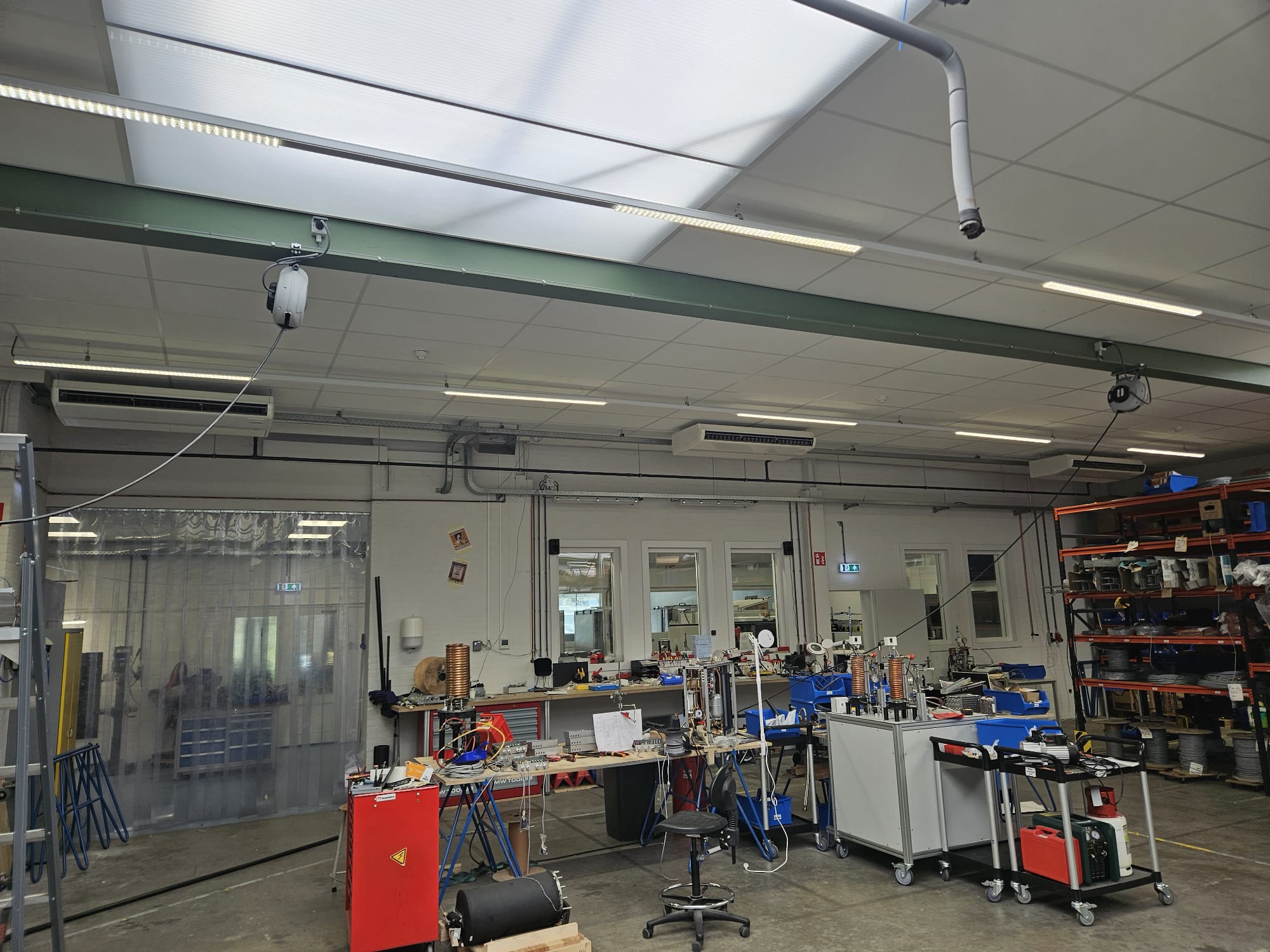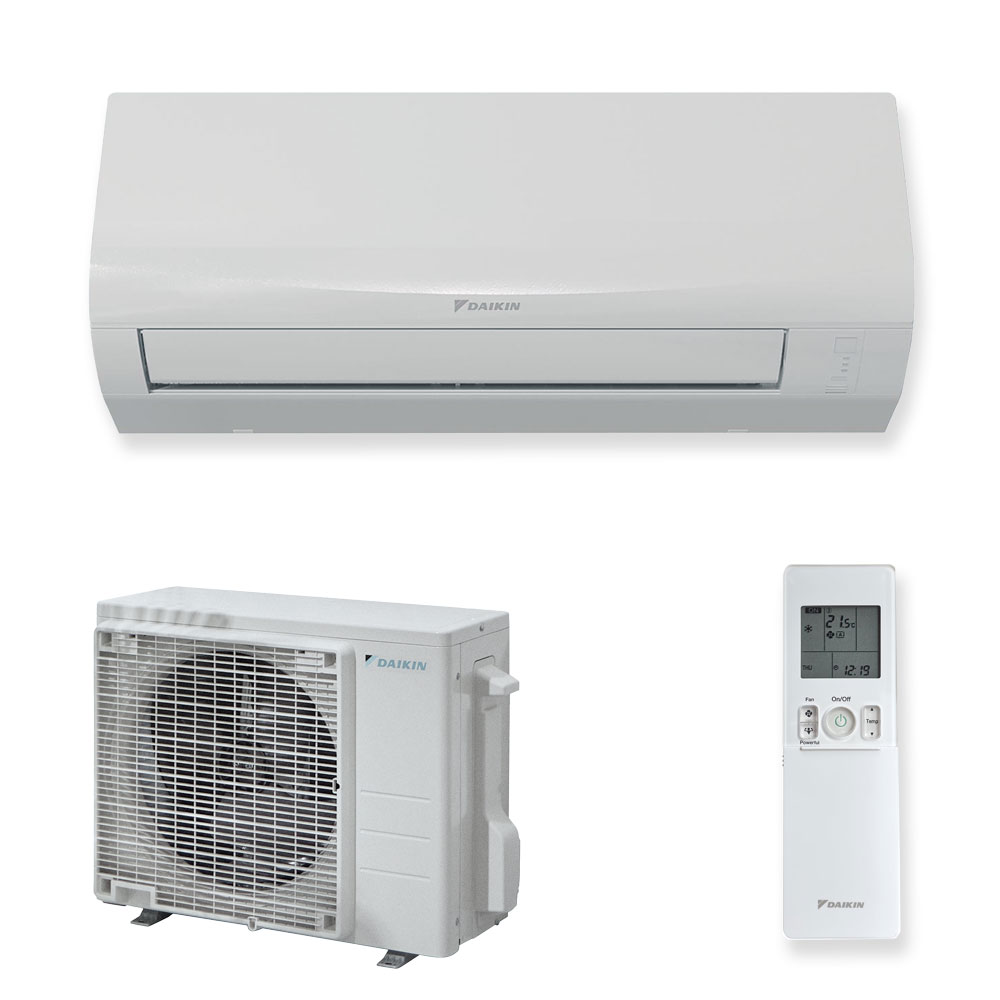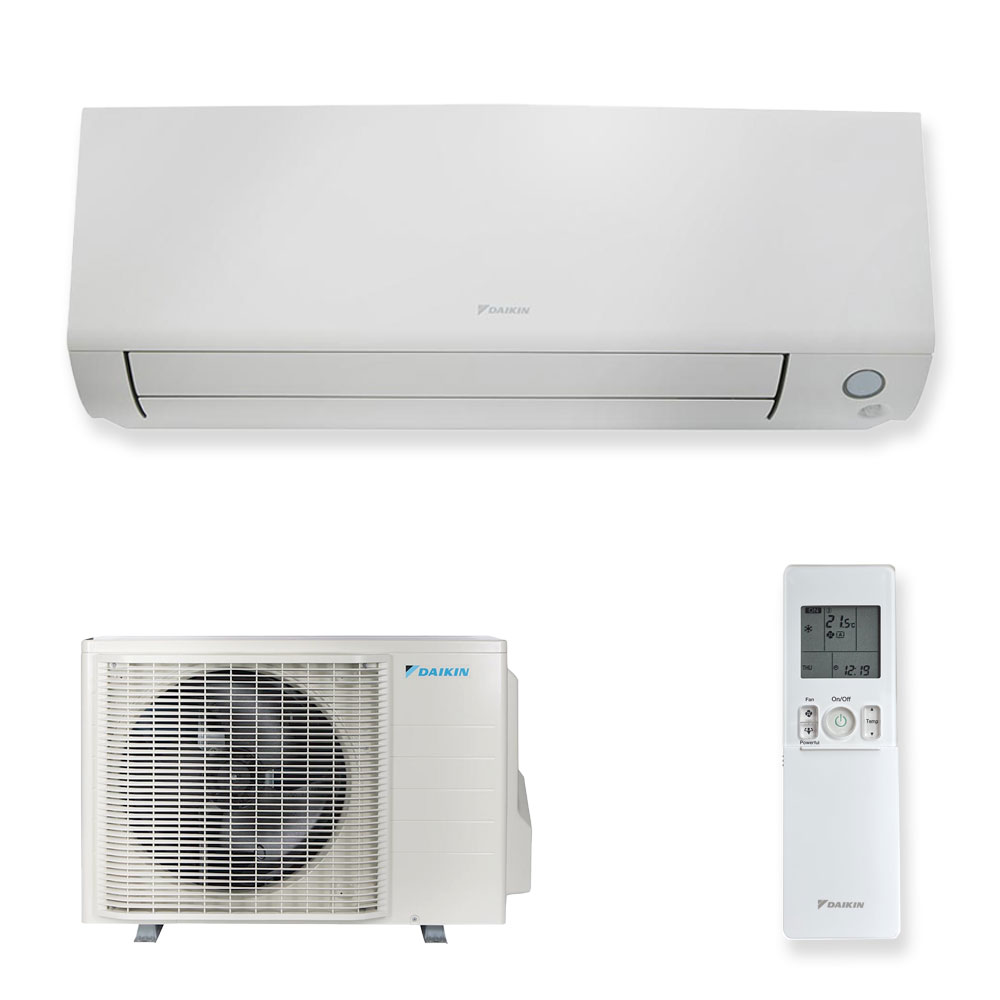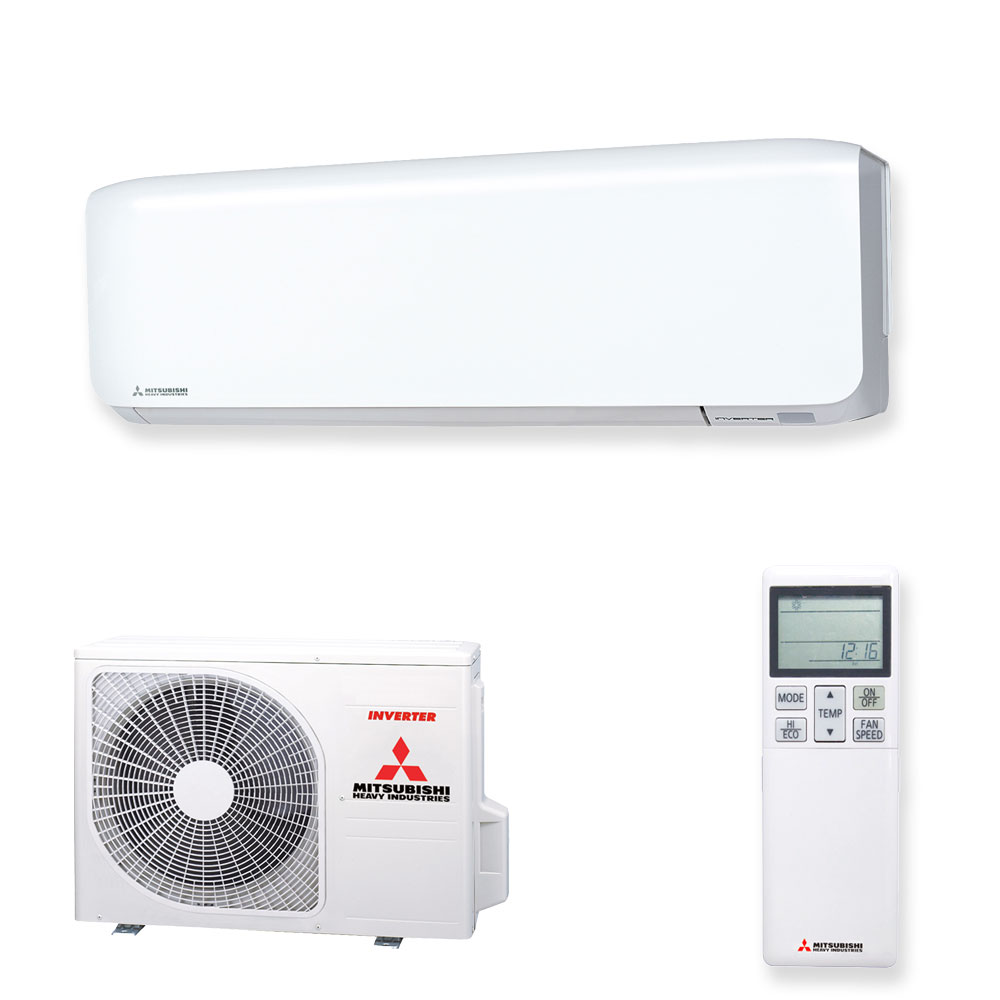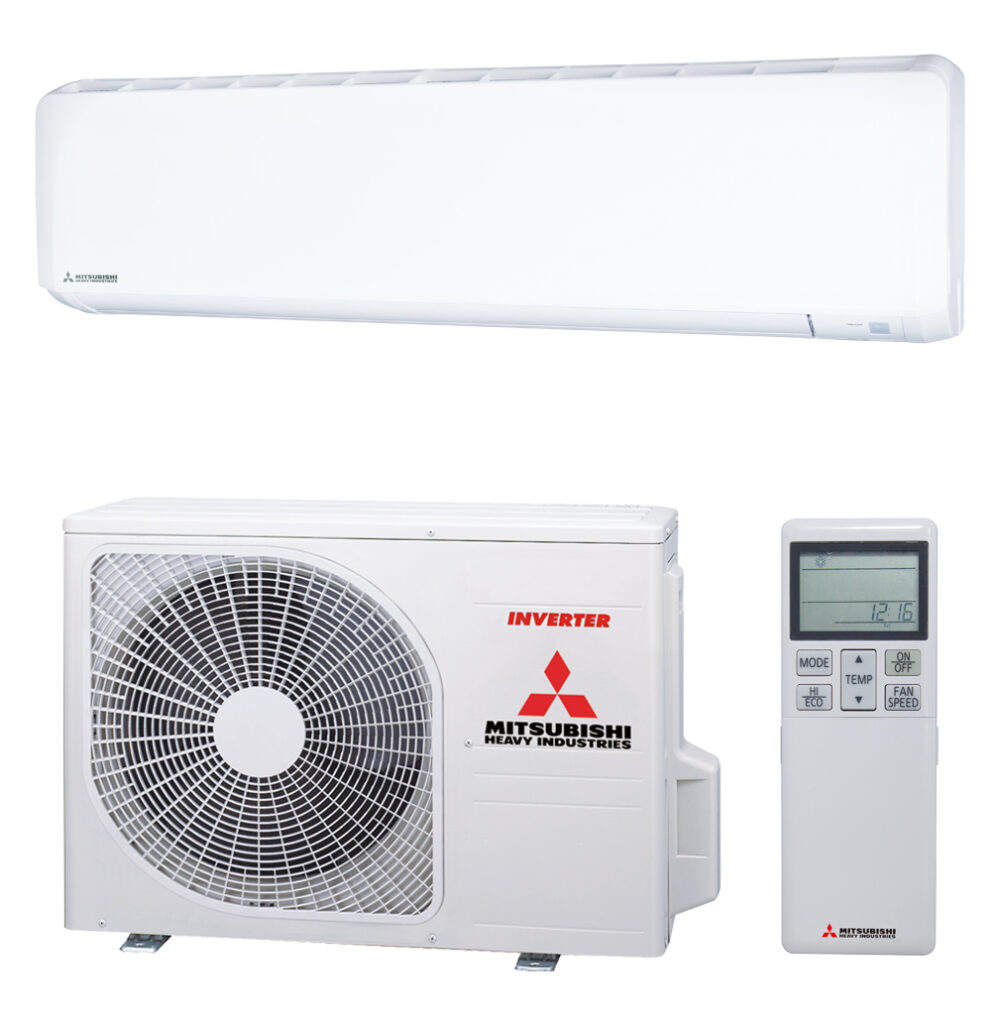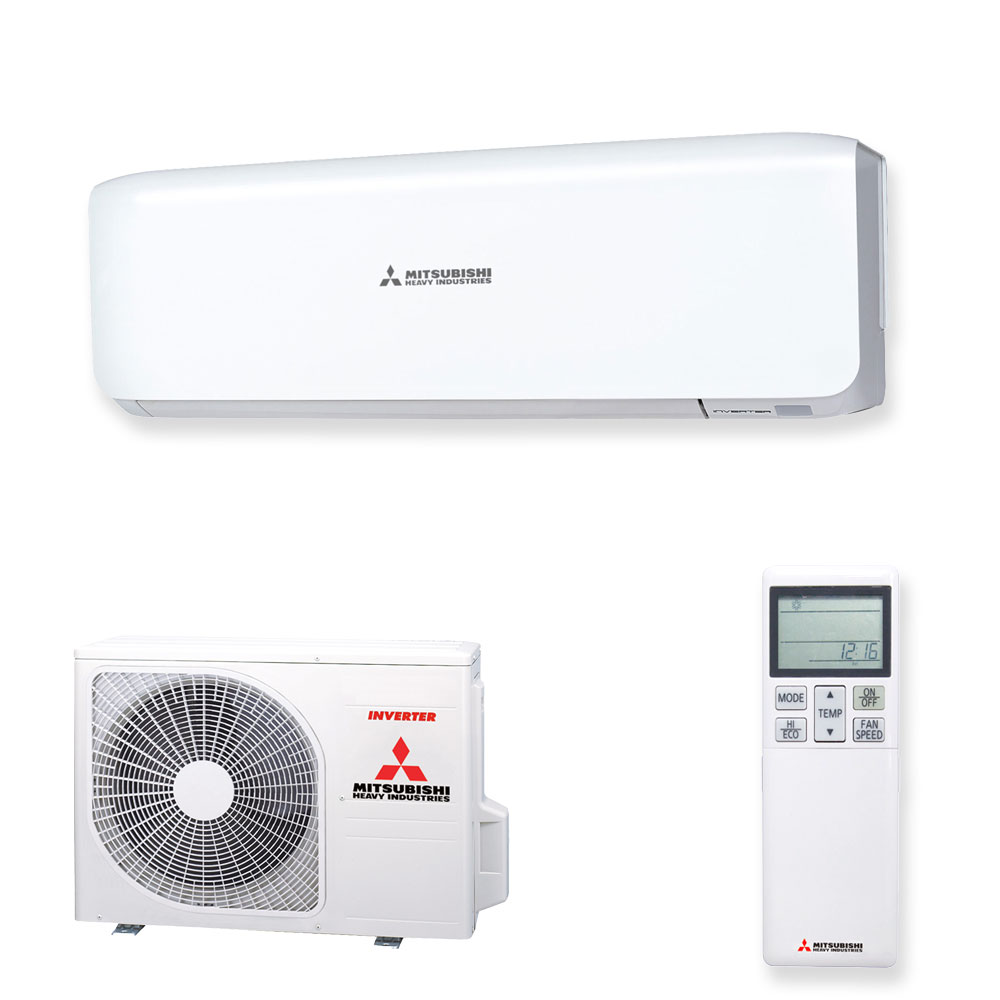Air conditioning for production area
The Benefits of Air-conditioning in Production Areas: Efficiency, Comfort and Sustainability
Improved Employee Productivity
In a production area, temperatures can rise quickly due to the machinery and intensive work present. Too high temperatures often lead to fatigue, loss of concentration and a decrease in productivity. With air conditioning, the temperature can be kept at a pleasant level, promoting employee efficiency. This prevents employees from overheating and enables them to concentrate longer and better, which improves productivity and quality of work.
Optimal working environment
Air conditioning provides a stable temperature and humidity, contributing to a healthy and comfortable working environment. Especially in production areas where fine materials, chemicals or electronic equipment are handled, it is important to regulate humidity. An environment that is too humid or dry can affect the quality of products, while stable humidity extends the life of equipment and materials. Moreover, a good working environment contributes to the well-being of employees, reducing absenteeism and creating a positive working environment.
Energy-efficient heating in winter
Modern air conditioning systems are often equipped with heat pump technology, which means they can efficiently heat as well as cool. This is ideal for production areas where heat needs to be distributed evenly and quickly, especially during cold periods. Compared to traditional heating methods, heat pumps consume significantly less energy, resulting in lower heating costs. For manufacturing companies, this is not only cost-saving, but also a sustainable choice in line with environmentally friendly business goals.
Lower energy costs and sustainability
Although air conditioning consumes energy, modern systems are designed to operate efficiently and save energy. Air conditioners with a high energy label, such as A++ or higher, are designed for lower energy consumption while providing effective cooling and heating. Combined with smart thermostats and timers, the air conditioner can automatically switch on and off depending on working hours, preventing energy being wasted when the room is empty. This significantly reduces energy costs without sacrificing comfort.
Professional and Safe Working Environment
A properly air-conditioned production area also affects employee safety. Certain tasks require precision and alertness, and a pleasant temperature helps employees stay sharp and avoid mistakes. It also shows that the company is investing in a safe, healthy working environment, which can contribute to a positive working atmosphere and employee retention. Moreover, a pleasant working environment makes work more attractive and improves overall team satisfaction.
Conclusion
Air conditioning offers significant benefits for production areas: it increases productivity, creates a healthy working environment and provides an energy-efficient heating solution in winter. A well-regulated indoor climate is essential for both employees and equipment, and contributes to company sustainability and efficiency. By investing in a quality air-conditioning system, manufacturing companies can create a pleasant, safe and energy-efficient working environment that contributes to the success of the organisation.
Filter
Number of rooms
Surface area m2
Brand
Series
Single or Multi Split
Model type
Space
Price
Colour
Sort price
Daikin Sensira FTXF 60 D
Suitable up to 72 m2incl. standard assembly
Daikin Sensira FTXF 50 D
Suitable up to 57 m2incl. standard assembly
Daikin Perfera FTXM 71 A
Suitable up to 81 m2incl. standard assembly
Daikin Perfera FTXM 60 A
Suitable up to 72 m2incl. standard assembly
Mitsubishi SRK 80 ZR-WF
Suitable up to 91 m2incl. standard assembly
Mitsubishi SRK 71 ZR-WF
Suitable up to 81 m2incl. standard assembly
Mitsubishi SRK 63ZR-WF
Suitable up to 72 m2incl. standard assembly
Mitsubishi SRK 50ZS-WF
Suitable up to 57 m2incl. standard assembly
Mitsubishi SRK 50ZS-W
Suitable up to 57 m2incl. standard assembly


